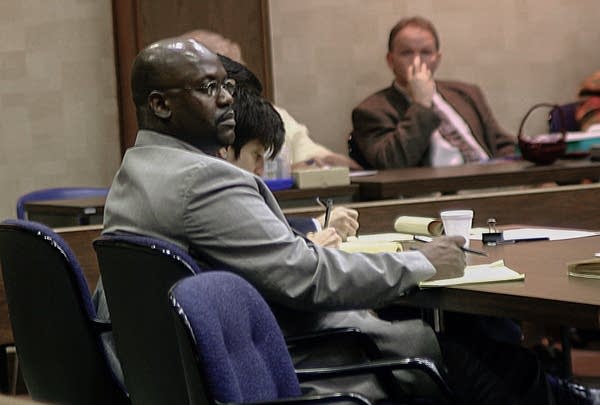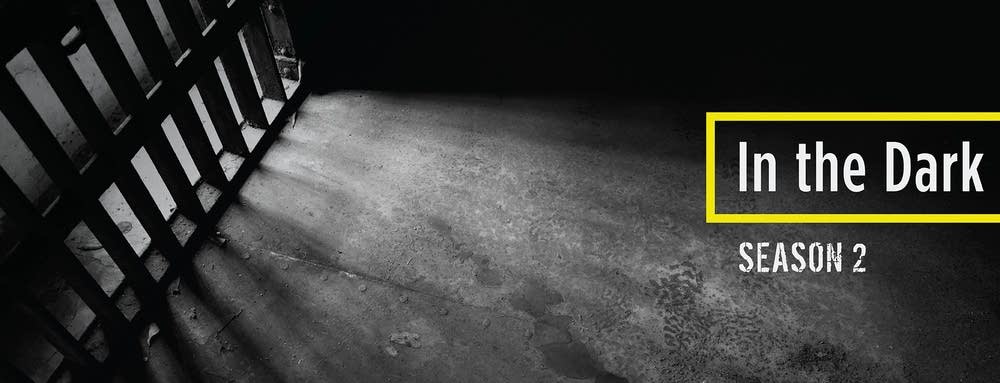How can someone be tried six times for the same crime?
Why double jeopardy doesn't apply in the Curtis Flowers case.

The answer to this question involves one person: the local district attorney. He or she has broad discretion over whether to take a case to trial, or, in the Curtis Flowers case, to repeated retrials.
If a prosecutor takes a criminal case to trial and the defendant is found not guilty, then it's over. The Fifth Amendment to the U.S. Constitution forbids the government from re-prosecuting someone for a crime once they've been acquitted — this is commonly known as double jeopardy.
But what's happened in the Flowers case is different. Flowers has never been acquitted. In his first three trials, he was convicted. Those convictions were later thrown out by an appeals court, which ruled that the prosecution made critical mistakes. Each time, the guilty verdict was essentially erased from the books, and the case went back to the beginning. The next two juries — in trials four and five — never reached a verdict. They just deadlocked and the proceeding ended in a mistrial.
After each one of these first five trials, the prosecutor in the case, Doug Evans, had a choice to make. Would he drop the murder charges against Flowers and release him or try again to convict him? And each time, Evans, who's been in office for more than two decades, chose to try Flowers again. The sixth trial's guilty verdict has so far held up.
Double jeopardy doesn't apply because, in effect, Flowers hasn't endured six trials for the same crime. He's just had a first trial — six times.
There's nothing in the law that bars a prosecutor from doing this — from retrying a case when the jury hasn't reached a unanimous verdict or a conviction hasn't stuck. That said, there's nothing that requires a prosecutor to try a case over and over again, either — and most don't.

How often does this happen?
No one tracks instances of repeated prosecutions at a national level. Even at a local level, these cases live on mostly in the memories of the attorneys and clerks that handled them. We conducted an informal poll of state prosecutors, defense attorneys, legal scholars, lawyers' associations, and civil rights organizations. Had any of them heard of someone, other than Curtis Flowers, being tried six times for the same crime? The answer was unanimous: Nope.
There are some examples if you dig. Between 2000 and 2005, a Mississippi man named Marcus Roberson was brought to trial eight times on murder charges. Only five of those trials actually reached the jury deliberation phase. The other three were declared mistrials at the start. After the last mistrial, Roberson pled guilty to manslaughter. Multiple prosecutions do happen, but they are rare.
"There's an unspoken rule that three times is sort of the max," said Hermann Walz, a former assistant district attorney in New York City and professor at John Jay College of Criminal Justice. "After three, most prosecutors decide that the evidence simply isn't there."
Walz said that certain factors can encourage a prosecutor to try a case a second or third time. If only one or two holdouts prevented the jury from reaching a guilty verdict, the case may still seem solid. If the jury convicted the defendant but that conviction was overturned on procedural grounds, a prosecutor might feel that correcting those errors and trying again is part of his duty to protect the public from a potentially dangerous criminal.
There can be upsides to a do-over. "Usually the second time around it gets better for the prosecution," said Melba Pearson, deputy director of the Florida ACLU and a long-time prosecutor in Miami-Dade County. "You're presenting the same evidence, you kind of know what worked and what didn't."
But multiple trials can also rack up costs in taxpayer dollars, jurors' time, and stress on victims and their families. And the case itself starts to fall apart. "By the third time trying the case, you're losing witnesses," Pearson said. "People retire, people pass away, people move, people say, 'You know what, I'm fed up, I don't want to be a part of this anymore, don't call me.'"

So why keep pushing?
"The stated reason to re-prosecute a case is almost always a continued belief that the individual is actually guilty of the crimes charged," said John Hollway, executive director of the Quattrone Center for the Fair Administration of Justice at the University of Pennsylvania Law School. "What's more difficult to parse is any potential unstated rationale."
Political pressure to prosecute can be immense. In nearly every jurisdiction in the United States, district attorneys are elected officials. Failure to secure convictions can sink an upcoming campaign. This is especially true in high-profile cases, where the victims are prominent citizens or outspoken advocates or the crime is especially heinous.
"When confirmation bias toward the state's theory of the crime combines with the psychological fear of embarrassment or mistake ... it is easy to see how even a well-intentioned prosecutor might cling desperately to actual guilt as a rationale for continuing to prosecute the case," Hollway said.
And when a prosecutor does cling to a case, there are only a few ways to put an end to it — all of them hard to come by.
The first is a judicial finding, often by an appeals court, of actual innocence — when there's new evidence or a DNA exoneration, for example. The second is an acquittal in a retrial. The third is a successful motion by the defense to get the prosecutor disqualified from pursuing the case any further.
"The argument would be, 'Hey, if this had been a fair trial, this guy would be acquitted and double jeopardy would apply," Hollway said. "The defense attorney is basically saying, 'Come on. You don't get to misbehave and then retry the guy.'"
Before Curtis Flowers' third trial, his defense team attempted something along these lines. Attorney John Gilmore wrote a motion that was the first procedural step toward having Evans removed from the case. Gilmore cited legal precedent for disqualifying a prosecuting attorney in a case where he's shown bias or has engaged in serious misconduct.
The judge, Clarence Morgan, didn't take much time to consider Gilmore's argument. He issued his ruling the very same day that the motion was filed — in a fast-moving hearing that was essentially a lightning round of pretrial motions. Rolling out of one motion and into the next, Judge Morgan put the question of Doug Evans' disqualification to Doug Evans himself.
"Mr. Evans," the judge said, "do you know of any reason you ought to be disqualified now?"
"Not that I'm aware of, Your Honor," Evans replied.
"Based on that statement," Judge Morgan said, "the motion is overruled."
Doug Evans would stay on the case. And not long after that, Curtis Flowers went on trial again.

